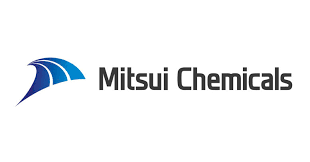
With our Corporate Mission and Future Vision foremost in our minds, we are promoting a variety of measures aimed at ensuring sustainable development in harmony with society.
Corporate Mission
Contribute broadly to society by providing high-quality products and services to customers through innovation and the creation of materials, while keeping in harmony with the global environment
STABiO™ series are aliphatic polyisocyanurates based on bio-based 1,5-pentamethylene diisocyanate(STABiO™ PDI™) which is a new product.
CHARACTERISTICS
- High NCO content and non-yellowing
- Excellent solvent resistance and weather resistance
- High biomass content with more than 60%
- Applicable to field hexamethylenediisocyanate (HDI) derivatives are being used
| STABiO™ | D-370N | D-376N |
|---|---|---|
| Appearance | Clear, liquid | Clear, liquid |
| Solid content, % | 100 | 100 |
| Viscosity at 25°C, mPa·s | 2,000 | 900 |
| NCO content, % | 25 | 23.5 |
| Monomeric PDI content, % | less than 1 | less than 1 |
| Remarks | Standard Polyisocyanurate type | Low viscosity Polyisocyanurate Type |
| Biomass content ※ , % | 70 | 67 |
Biomass content of these polyisocyanates was measured according to ASTM D6866-04.
Although the data above is not guaranteed by any industrial standards, it is based on test results
Mitsui Chemicals, Inc. is collaborating with Kaisei Inc. on a project aimed at the development of bio-PP at commercial scale. The project has been adopted by Japan’s Ministry of the Environment as part of its plans for a carbon-free society ambition. Mitsui Chemicals’ bio-PP pilot project will aid in the country’s effort to reduce greenhouse gas emissions.
The Ministry of the Environment is further supporting a carbon-free society by accelerating the construction of resource recycling systems for plastics and other materials. This project will run trials for switching to renewable resources as a substitute for petroleum-derived plastics as well as for building recycling processes for plastics and other materials.
Mitsui Chemicals will therefore be conducting the world’s first bio-PP industrialization demonstration test. This will involve conducting numerous and varied evaluations of technologies, quality, economic efficiency, and environmental impact such as GHG reduction. After solving these issues, Mitsui Chemicals Group will consider commercializing the production of bio-PP. Production, said the company, will start in 2024 at the earliest. The project will be part of the expansion of the company’s so-called Blue Value™ products , or environmental contribution value products, based on its climate change policy and plastic strategies. In 2015, Mitsui developed the environmental contribution value, Blue Value™, to achieve its goal of realizing a “cohesive society in harmony with the environment”. Under the unique environmental impact assessment criteria Blue Value™ Index, the Mitsui Chemicals Group certifies products and services as having Blue Value™ that are deemed to reduce CO2, protect resources, and harmonize with nature, thereby contributing to the environment in three elements.
“We aim to commercialize bio-PP, which has yet to be produced from biomass unlike other major resins We will build a circular model throughout the manufacturing supply chain to significantly reduce CO2 emissions,” the company announced in a statement released 26 September.
Polypropylene has a wide range of applications, spanning automobile-parts to medical care products, home appliances, housing and food products, and accounts for more than 20 percent of the plastic produced in Japan. However, due to technical difficulties, production of polypropylene from biomass has not been established at the industrial level.
Conventional plastics are produced from fossil resources that have been stored underground for mhundreds of millions of years, while bioplastics are primarily derived from plants. Since plants absorb CO2 from the atmosphere to grow, they offer a more effective way to reduce CO2 emissions, thus helping to mitigate global warming. Bio-PP derived from plants is a product expected to contribute to a more sustainable society.
The new production route towards commercialization involves the fermentation of various type of biomass – mainly non-edible plants – to produce isopropanol (IPA), which is then dehydrated to obtain propylene in a first-of-its-kind IPA method. Compared to other biomass production approaches studied by other companies thus far, this could prove to be a more cost-effective way to manufacture bio-PP.
Kaisei Inc. will cultivate biomass raw materials used by Mitsui Chemicals, collect wastes generated from biomass raw materials, and supply electricity to manufacturing facilities and manufactures fertilizers through its effective use. By collaborating with Kaisei Inc., Mitsui Chemicals aims to contribute to society through environmentally friendly action with a circular model that leverages the supply chain.